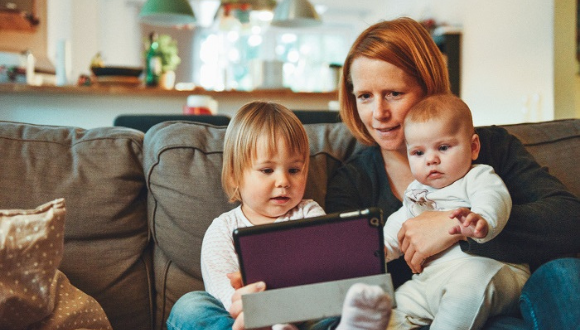מחקר חדש: כיצד מתמודדים הורים לילדים עם אוטיזם בתקופת הסגר בעת מגפת הקורונה
המחקר התפרסם בירחון Autism: International Journal of Research and Practice. מובילי המחקר: ד"ר איתי טוקטלי לצר, ד"ר פרופ' יעל לייטנר ופרופ' אורית קרניאלי-מילר
בשל פריצת מגפת הקורונה והסגר הראשון שנכפה על הציבור שכלל גם את סגירת המוסדות לחינוך מיוחד, נאלצו ילדים שאובחנו על הרצף האוטיסטי להישאר בבתיהם עם משפחותיהם. הם נותרו ללא מסגרת וללא מערך תמיכה. במחקר האיכותני שערכנו, בשיטת ההיטמעות/התגבשות, רואיינו 31 הורים של ילדים עם אוטיזם. דרך הניתוח המעמיק שערכנו, הבנו כי הקשיים העיקריים איתם התמודדו המשפחות נבעו מהשינוי ברוטינה, העדר מסגרות החינוך המיוחדות, המרחב המוגבל לתנועה ונושאים הקשורים באוכל ושינה. כל אלה הובילו אצל חלק מהילדים להחמרה ורגרסיה התנהגותית, חברתית והתפתחותית. היו דיווחים על התנהגויות אלימות מצד הילדים, אכילה מופרזת ולא בריאה כמו גם חוסר חיבור למסגרות למידה מרחוק. מאידך, חוויה טובה בתקופה זו שדווחה על ידי הורים אחרים, נבעה בעיקרה מהאופן ההתמודדות של ההורים. דבר זה כלל יכולת להכיל את צרכי הילד, אופן פתרון בעיות יצירתי ומבט כללי חיובי על ההתרחשויות. ניתוח הנתונים הדגים את החשיבות של תמיכה מכוונת הורים להתמודדות עם כוחות ויכולות בתקופה מאתגרת ש"משבשת חיים" כגון סגר שמוטל בעת מגפה. חשיבות פיתוח מערכות תמיכה, מקרוב ומרחוק, שיאפשרו להורים ללמוד כיצד לייצר שגרה חדשה, כיצד להכיל את הצרכים של ילדיהם ולקדמם גם בזמנים אלו. בנוסף הודגש הצורך במסגרת, הן לצרכים פיזיים, כמו אכילה סדורה, והן לצרכים התפתחותיים וחברתיים.
The lockdown and home isolation due to the COVID-19 pandemic led to significant transformation in lifestyles. Being a parent in this situation was not easy for anyone, much less for parents of children with special needs. The shutting down of special education systems meant that parents lost a vital support network and had to be the sole full-time caregivers despite often lacking the skills to cope with this new and daunting situation. We interviewed 31 parents, using a qualitative Immersion/Crystallization analysis process and learned that the main difficulties faced by home-bound autistic children stemmed from the change in routine, lack of special education services, limited physical space, and food- and sleep-related issues. Parents reported that some children experienced worsening in behavioral, social, and developmental domains. This included difficulties in controlling anger outbursts and problematic eating habits. Others seemed to not only overcome the challenges of changing conditions but even benefit from them. The way of coping with this steep transformation impacted the final parental and child experience. Key factors that enabled successful coping were the parents’ ability to accommodate to the child’s needs, their own creativeness and resourcefulness, and a generally positive outlook. The results of this analysis revealed the need to support parents in the adjusting to the new circumstances and to create a new flexible routine. Additionally, to provide services that can help to maintain the developmental progress and a healthy lifestyle. The support given to parents of children with autism in acute life disturbances can also be of benefit in “normal times”.
Tokatly Latzer, I., Leitner, Y., & Karnieli-Miller, O. (In press). Core experiences of parents of children with autism during the COVID-19 pandemic lockdown. Autism: International Journal of Research and Practice.
קישור למאמר יפורסם בקרוב...





